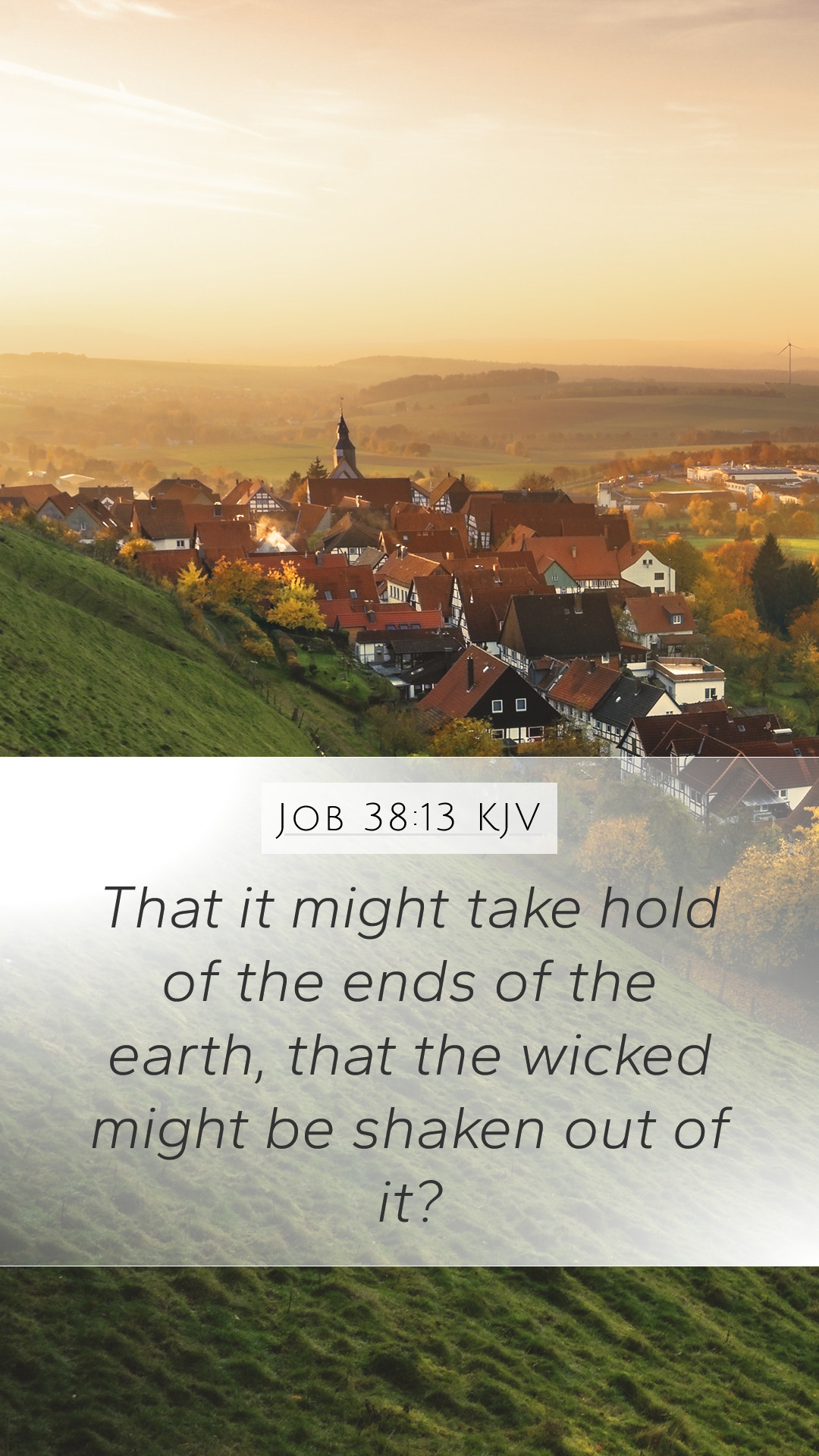Understanding Job 38:13
Job 38:13 states, "That it might take hold of the ends of the earth, that the wicked might be shaken out of it." This verse is part of God's response to Job, emphasizing divine authority over creation and its moral order. Let's explore a comprehensive understanding using insights from public domain commentaries by Matthew Henry, Albert Barnes, and Adam Clarke.
Contextual Background
The Book of Job addresses profound themes such as suffering, justice, and the human condition. Job, a righteous man, finds himself in immense suffering. The subsequent dialogues with his friends introduce questions about divine justice, leading to God's response in chapter 38, where He questions Job about the natural order and Job's limitations in understanding divine wisdom. God's inquiries highlight His omnipotence and the limitations of human perspective.
Verse Analysis and Commentaries
-
Matthew Henry's Commentary:
Henry interprets this verse as illustrating God's power over creation. The phrase "take hold of the ends of the earth" indicates how God's sovereignty extends to the entire world. He stresses that the purpose of this divine action is to rid the earth of wickedness, demonstrating justice and the ultimate triumph of good over evil.
-
Albert Barnes' Notes:
Barnes emphasizes the metaphorical significance of the earth's ends being shaken. He suggests this imagery pertains to God's control during earthly turmoil, signifying that moral and spiritual upheaval leads to the purification of the world. Barnes focuses on the aspects of fear and reverence that come when God's justice is enacted.
-
Adam Clarke's Commentary:
Clarke points out the rhetorical nature of God's question, highlighting Job's unawareness of cosmic governance. He interprets "the ends of the earth" as a call to Job to recognize the vastness of God's creation and the wisdom involved in its management, particularly through justice.
Implications for Bible Study
This passage invites profound reflection on God's sovereignty, the nature of suffering, and the moral order of the universe. In Bible studies, whether in groups or online settings, this verse can ignite discussions about:
- The nature of divine justice
- The role of suffering in the life of a believer
- The relationship between God’s omnipotence and human understanding
Applying Job 38:13 to Daily Life
Understanding the meaning of this verse leads to insights on how to navigate personal suffering and injustice. Believers can find solace in the reminder that while evil exists, God remains in control of His creation, and ultimate justice will prevail.
Cross References
This verse resonates with several other scripture passages that speak to God's authority and justice:
- Psalm 75:3 - "The earth and all its inhabitants are disturbed; I have established its pillars."
- Ecclesiastes 3:17 - "I said to myself, God will bring into judgment both the righteous and the wicked."
- Isaiah 40:22 - "It is He who sits above the circle of the earth, and its inhabitants are like grasshoppers."
Conclusion
Job 38:13 highlights the majesty and sovereignty of God over His creation. The exploration of this verse through Biblical exegesis reveals a profound understanding of divine justice and the human condition. Engaging with such scripture not only deepens our understanding but also enriches our spiritual life and Bible study practices.


